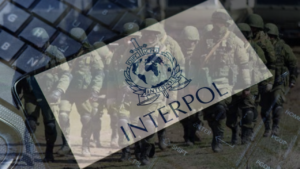War Will Cover It All Up: Soldiers Accuse Commander Yurchuk of Abuses
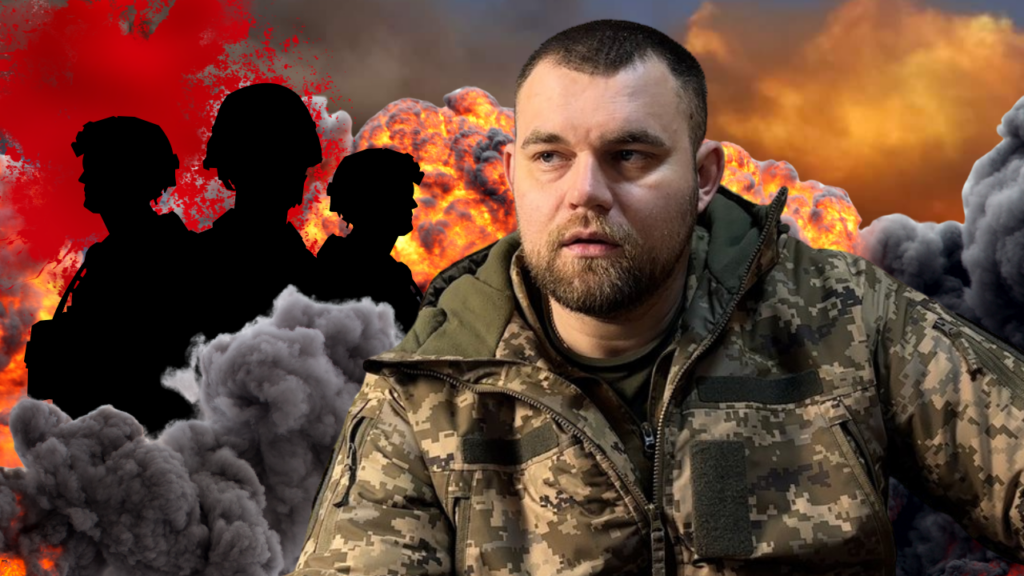
On the morning of August 3, 2022, at 9:00 a. m., Sergeant Oleh Havula woke up in his dugout in the village of Pisky near Donetsk, had breakfast, and went outside. At around 10 a. m., just behind the dugout, he shot himself in the head through the chin with his personal AK rifle. That is the official version of the death of Oleh Havula — a squad leader who was fighting in Pisky, a veteran of the war in eastern Ukraine, and a foreign language teacher in civilian life.
His family does not believe it.
The battalion commander, under whom Oleh Havula served, had the call sign “Pianist”. In the summer of 2022, relatives of other soldiers began posting complaints on social media sites about the leadership of this battalion and brigade. Those were not only about “deadly orders”, but also about violence against servicemen, numerous disappearances, cases of absence without leave (AWOL), and suicides. Later, complaints also started coming in to the MIHR.
Perhaps this article would never have been written if Ukraine’s law enforcement system — and especially the courts — were functioning properly. If there were effective mechanisms in place to protect the rights of servicepeople. If what happens within the Armed Forces were more transparent and clear at least to those directly involved.
“Pianist yelled at the deputy battalion commander, “Don’t spare anyone — they’re just meat”
The village of Pisky, near Donetsk Airport, was one of the hottest combat zones in 2014, up until the fall of the airport. Utterly destroyed, it once again became a site of fierce fighting in the summer of 2022. The Ukrainian side lacked artillery for effective defense. Russian breakthroughs were being held back by sacrificing both experienced fighters and raw recruits. To recapture lost positions, soldiers were sent into what often seemed like senseless assaults. One such case occurred on September 5, 2022. It became known thanks to a video recorded by one of the participants — seasoned soldier Serhii Shutkov.
He and another participant in the assault, Vitalii Pliasov, later commented on the footage to journalist Yurii Butusov. They said that they had been sent into the assault without coordination, communication, or cover, with enough ammunition to last only 10 to 15 minutes of combat. The reinforcements that were supposed to arrive after the 12-man squad drove the Russians out of the position never showed up.
Only six soldiers survived the assault, which the battalion commander observed via drone. Among them was Pliasov, who was severely wounded and taken captive — later released during a prisoner exchange at the end of that year.
Soldiers testified that they had refused to carry out the mission, but the brigade commander had threatened to report all of them having gone AWOL in case of a failure to execute his order. Just the day before, on September 4, another Ukrainian assault team had been killed in the same area.
The concerns and allegations voiced by Shutkov and Pliasov were later echoed by many other soldiers who had served under Pianist — in their testimonies given to the MIHR, as well as in their media interviews and posts on social media sites: senseless, deadly orders accompanied by threats or even violence for disobedience; lack of planning and coordination; absence of artillery support and no evacuation plans.
“Pianist said that we all were just cannon fodder, that we would all die, and that tomorrow the army recruitment center would send him more meat,” a former serviceman told the MIHR in an interview.
“At first, we joked about it. But when we started suffering losses, we realized he wasn’t joking,” he continued. “I personally heard over the radio Pianist shouting at deputy battalion commander Myth, ‘Don’t spare anyone — send them all in. They’re just meat. Fresh ones will come tomorrow.’”
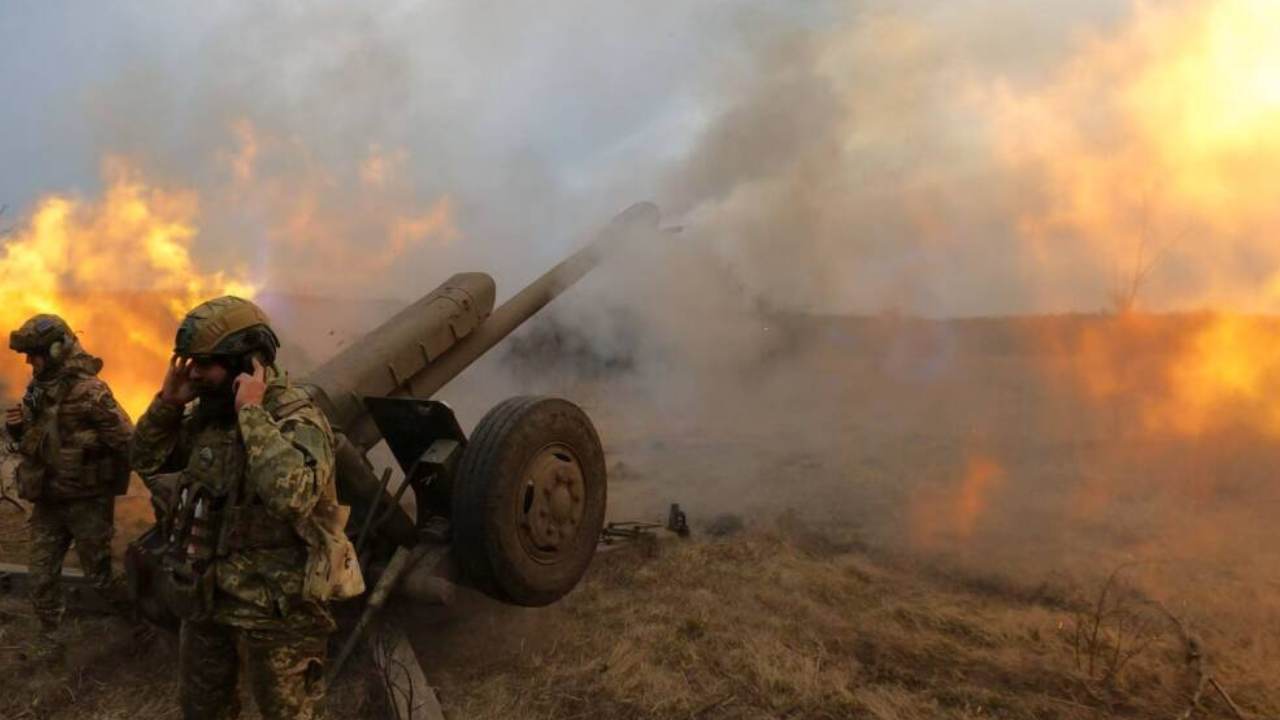
Ukrainian soldiers in Donetsk Region. Illustrative photo. Photo: AFP
“When we started talking about rotation, the battalion commander began forming ‘pressure squads’ in every unit,” says another witness. “Groups of 15 to 20 athletic-looking guys. For example, if Company No. 1 starts voicing discontent, he sends these guys to Company No. 3 where they get quickly calmed down: they receive beatings, are given no food, stripped of their weapons and then sent to the front line without body armor to dig trenches.”
From the first witness’s account: “We had just returned from the front lines and were stationed at a kindergarten in the town of Ukrainsk. When the senior sergeant came up and said we’d be returning to the same position that evening, I protested — it was always the same people fighting, no time even to rest or do laundry. They called in Pianist, and he showed up with his team in four cargo trucks. We were all lined up, and those who had spoken out were stripped of their positions in the second company and transferred — some to the first company, some to the third one. I ended up in the first company.”
“When I arrived, I saw soldiers who had gone AWOL and had been beaten, digging emplacements. Two or three armed men stood over them, forcing them to work.”
The death of Oleh Havula was preceded by an argument over an order that occurred a month earlier — according to a witness found by Vitalii Havula, Oleh’s brother and a lawyer.
According to the evidence collected within the unit during the internal investigation, Oleh and several other soldiers had been sent to the front lines the night before to dig trenches.
As claimed by the witness found by Vitalii, Oleh — widely described as a calm, polite, and non-confrontational person — was indignant about the order not only because it was dangerous, but also because there was no one to defend the new trenches, while the Russians were advancing. Oleh Havula allegedly remarked that Ukrainians were in fact preparing defensive positions for the Russians. According to the witness, the platoon commander replied that he understood his reasoning but was following the order from Pianist.
Upon returning to his dugout early in the morning, Havula reportedly continued to argue with the platoon commander about the absurdity of the orders.
The military unit conducted two internal investigations into Havula’s death, both ordered by the battalion commander. Findings of the first investigation were rejected by the family, who began to raise a public outcry. That investigation lasted just two days and was completed before forensic autopsy and firearm examination reports were even available. All four witnesses gave nearly identical, brief statements — inconsistencies in which were later revealed by Vitalii Havula.
However, the family was even less satisfied with the results of the second investigation. The same individuals were interviewed, this time by their direct superior — the platoon commander, who, as the lawyer suspects, may have been involved in Oleh’s death.
The testimonies were expanded to rationalize the suicide theory. For example, it was claimed that Havula had complained that his wife had not visited him — even though she and their children had recently traveled to see him in Dnipro.
The rifle that Havula allegedly used to shoot himself was only seized and examined in September-October 2022. At the same time, the forensic report did not mention whether the magazine contained any bullets, or how many there were. The investigation made no mention of the bullet that killed Oleh Havula.
Vitalii Havula challenged the investigation’s findings in court, but there has been no progress except for preliminary hearings since early 2023. The Kyiv District Administrative Court scheduled the first substantive hearing for January 16, 2024, but it still has not taken place.
According to Vitalii Havula, after Oleh’s death, someone from his unit called the local council in his home village in Kirovohrad Region and informed them that he had committed suicide and thus was not entitled to an honorable burial at public expense. The village priest refused to conduct a funeral service for Oleh.
“My brother grew up in a village. You can imagine how locals now treat Oleg’s wife and children — relatives of a man who gave three years and ten months of his life to military service,” says Vitalii.
The money case
While the lawyer was trying to secure a proper investigation into his brother’s death, significant changes occurred in the careers of Pianist and the brigade commander under whom he served.
In February 2023, the battalion commander was promoted to Chief of Staff — First Deputy Brigade Commander. By that time, several criminal proceedings had already been initiated against him in response to complaints from relatives of servicemen — but none had reached the courtroom.
That summer, the brigade commander was appointed Chief of Staff — Deputy Operational Commander of the Ukrainian Ground Forces.
There was another occurrence in between those two events. In July 2023, the State Bureau of Investigation (SBI) reported uncovering an “organized group” of five individuals — a commander of one of the military units and four of his subordinates — who had allegedly listed nine people as being on the front line, while they were actually stationed in the rear. These individuals had received 100,000 UAH each in combat bonuses for seven months.
In the photo of the arrest, released by the SBI, relatives of servicemen recognized the dining room of the main command post of the brigade where Pianist served.
In February 2024, the Selydove City Court of Donetsk Oblast began considering the case against him and the four brigade officers, who were charged with violations under the articles “Misappropriation, Embezzlement of Property, or Taking Possession of it Through Abuse of Official Position” and “Forgery in Office”. The first article provides for a punishment of seven to twelve-year imprisonment.
However, the trial process did not even result in a preliminary hearing. In July, the court, at the request of the defense, suspended the proceedings until the accused were discharged from military service. The prosecutor’s office appealed this decision, but both the appellate and cassation courts refused to initiate proceedings.
The MIHR learned about the process only through non-governmental registers, since all rulings of the Selydove City Court in this matter were removed from the Unified State Register of Court Decisions. Their traces still can be found only through the Unified Center for Processing Court Decisions and YouControl. The state-owned enterprise “Judicial Information Systems”, which administers the state register, explained in its response to the request made by the MIHR that access to the documents was restricted by the order of the State Judicial Administration “to prevent threats to the life and health of judges and participants in the judicial process.”
Before the appeal hearing of the complaint against the Selydove City Court’s decision, a court in Dnipro began reviewing a case involving the same defendants and alleging the same violations. The defense again tried to suspend the process, but this time the court refused to grant the petition.
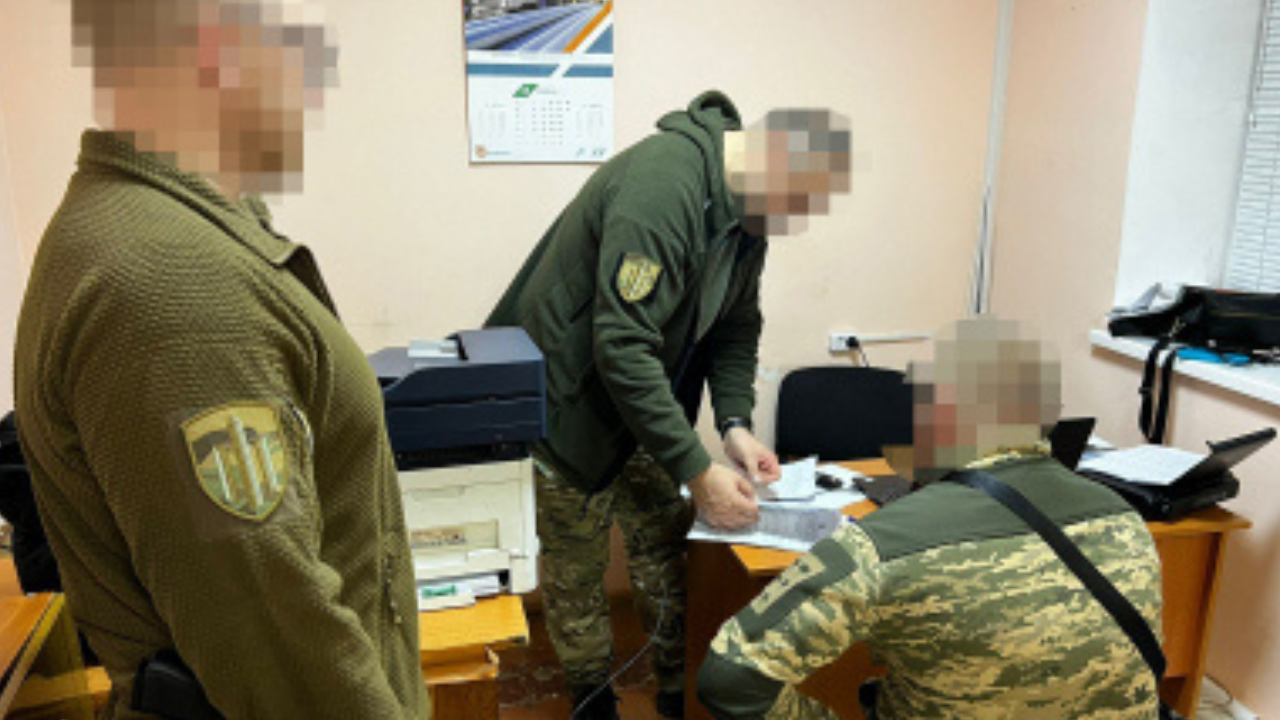
A search of the military unit conducted with regard to the case against the commander and his four subordinates, who allegedly unlawfully received combat bonuses. Photo: SBI
Thanks to the fact that the prosecutor’s office initiated a new case and the court held a preparatory hearing, the MIHR has learned some details of the case. The case involves ten servicemen who, between March and September 2022, transferred part of their combat bonuses to an account registered in the name of one of the defendants — allegedly believing that they were making charitable donations to their military unit.
By mid-2022, there were already rumors among relatives of servicemen that officers in the brigade where “Pianist” served had been abusing their positions for personal gain. Specifically, it was said that the then-battalion commander had been pocketing a portion of combat bonuses from servicemen who, in reality, had not been deployed to the front lines. In social media groups and chats, people published photos allegedly showing the battalion commander’s new car, a BMW X5, which he reportedly claimed to have purchased in the summer of 2022.
The Unified State Register of Declarations contains financial disclosures filed by Pianist’s third wife, to whom he was reportedly married around 2022–2023. Her 2022 declaration lists a 2010 BMW X5 owned by her husband, purchased in June 2022.
In the same declaration, his wife who a year earlier had declared only IDP (internally displaced person) assistance and less than UAH 120,000 in alimony, specified UAH 212,000 in salary and an additional 120,000 in monetary assets. In her 2023 declaration, the monetary assets were no longer listed, but his wife acquired ownership of the BMW X5 car the declared value of which at the time of ownership transfer was UAH 100,000. In her 2024 declaration that no longer listed her husband, neither the monetary assets nor the car was stated.
Back in 2021, in Mykolaiv, Pianist initiated legal proceedings against his first wife to reduce the alimony he was required to pay. Court documents show that in the first half of 2021, the plaintiff’s monthly salary averaged just over UAH 16,000 out of which he spent UAH 10,000–11,000 on housing in Mariupol and also provided financial support to his common-law wife and her young child. Additionally, he had to pay alimony for his second child.
According to the SBI report, preventive measures will be employed against the five exposed officers, but it is unknown whether any of them have been arrested. Unconfirmed reports suggest that “Pianist” was removed from his position in the brigade. His publicly available biography does not include clear dates of appointment or dismissal. Documents available in the public domain show that in the fall of 2023, he spent a week receiving treatment at a military hospital for the effects of a severe injury that he claimed to have sustained in April 2023.
In any case, in early 2024, “Pianist” was back in active service and even was promoted to commander of a different brigade.
Bad reputation
Discussions about abuse cases within the brigade where Pianist served as a battalion commander and then deputy brigade commander in 2022 – 2023 were further fueled by another mysterious death that gained public attention.
On November 19, 2022, Andrii Drach — head of the battalion’s fuels and oils supply service under Pianist’s command — returned from a short leave that he had taken to celebrate his birthday and wedding anniversary at home. On the morning of November 21, he stopped answering calls from his family.
The unit reported that he had disappeared, leaving behind his weapon and personal belongings including documents, cash, and bank cards. Later, the unit claimed that Drach had gone fishing and disappeared, and that as of November 22, he was considered to have gone AWOL.
Andrii Drach, who had taken up his position in the battalion before Pianist became commander, was allegedly involved in a longstanding conflict with the latter. The new commander reportedly pressured Drach to participate in fuel misappropriation schemes in which Drach refused to take part. His disappearance, which occurred around the time that he was expected to prepare the unit’s annual fuel expenditure report, caused alarm among those who were aware of the friction between him and the commander.
On the night of December 14, 2022, Andrii Drach’s body was found at the unit’s location. The official cause of death was listed as a Russian shelling incident while he was fishing but the circumstances surrounding his death have led those critical of the commander to question this version of events.
According to the servicemen interviewed by the MIHR, by 2024, Pianist’s reputation within the Armed Forces of Ukraine as a “butcher” — whether deserved or not — had become so notorious that, upon hearing news of his new appointment, some officers in his new brigade, including those responsible for logistics, immediately began transferring to other units.
In the fall of 2024, a new scandal erupted — this time involving the new brigade. Servicemen from the 155th Battalion of the 117th Separate Territorial Defense Brigade, which had been temporarily placed under Pianist’s command, gave an interview to journalist Alona Yatsyna, voicing the complaints nearly identical to those heard during the defense of Pisky: lack of artillery support, no evacuation and harsh, inhumane treatment of subordinates.
According to them, the battalion suffered devastating losses under the new command. Now, some of the soldiers are being transferred to Pianist’s brigade — a move they are actively resisting.
The brigade commander responded to the allegations. In the interview given to Suspilne, he claimed that the battalion’s actual losses were three killed, three seriously wounded, and another 188 concussed.
“Any soldier knows what 188 blast traumas really mean. In reality, that’s 188 cases of covert refusal and evasion of duties. Well, I’m exaggerating — not 188, let’s say 150 hidden refusals to carry out missions, and 20 to 30 actual concussions, where soldiers are genuinely unable to continue performing tasks,” he said.
The brigade commander also noted that only about a third of the battalion’s soldiers, who had been transferred to his brigade, actually followed the transfer order, “the rest are still telling us they’re undergoing medical treatment.”
In the interview given to the MIHR, soldiers from the brigade said that the 155th battalion had indeed been “battered”.
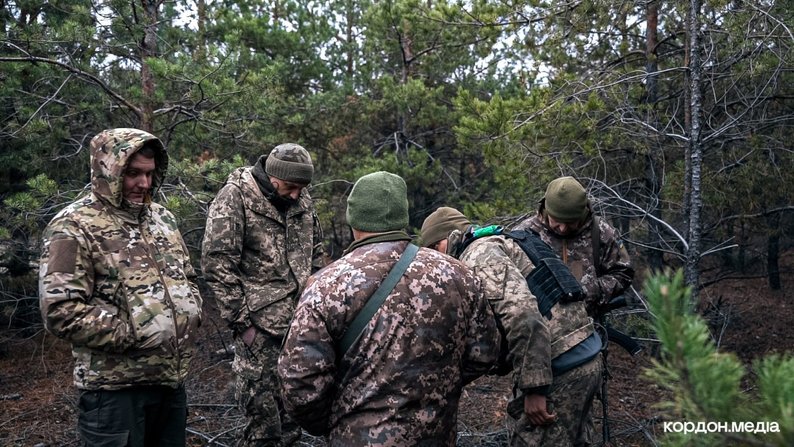
Soldiers of the 154th Separate Territorial Defense Brigade. Illustrative photo. Photo: Kordon.Media
“As long as the battalion held its own defense sector, everything was fine. But when positions on the left flank were breached in another brigade’s area of responsibility, an order came to send a joint detachment to reinforce them — consisting of personnel from the 155th and another battalion, along with two UAV crews from two other units — that is, people from four different units who didn’t know each other. There was no time for reconnaissance or coordination with the other brigade.”
“When that battalion got torn apart (some were sent to the left flank, others to the right one), when they were pulled out from under their battalion commander’s direct control, that’s when the problems began,” one of the soldiers told the MIHR.
According to him, the redeployed troops had to fight without proper coordination. At the same time, he attributed the lack of artillery support on the front line not to the commander’s fault, but to a general shortage of artillery. Pianist himself never publicly complained about the lack of artillery.
“The brigade commander should have given the battalion commander clear directives: make contacts, organize everything. When everything is organized and coordinated, even if you’re short on ammunition, you’ll get support in a critical situation. But if you don’t know whom to turn to in a critical moment, then what kind of support can you expect? And for Pianist, that’s just the way it should be — he simply doesn’t care,” the soldier said.
He and another MIHR source who served in the 155th battalion point out higher losses than those described by the brigade commander. To back up his words, one of the men sent a video of the Alley of Glory in Sumy, where dates on the memorial stands show that at least 21 soldiers were killed from April to November 2024 (the period when the 155th battalion was under Pianist’s command). That is half of all confirmed fatalities from the battalion since the start of Russia’s full-scale invasion.
Soldiers from the brigade, like their predecessors under Pianist’s command, also draw attention to the brigade commander’s impulsive behavior, his blatant disrespect for subordinates — regardless of their age or experience — and his inclination to physically abuse soldiers or threaten those who disagree with him.
“He says: if you talk too much, I’ll ‘zero you out’. And I’ve seen him ‘zero out’ officers,” said one soldier. “He transferred them to infantry or assault teams.”
MIHR sources also claim that orders from the brigade commander were given only verbally. “Up to twenty Russians reached the positions where we had just four guys. They pushed them out: two were killed, two wounded withdrew. The order came to retake the positions by evening. And the only people left were those two wounded soldiers. They went back. One was killed, the other one barely made it back. It was a verbal order. The battalion commander threatened that if they disobeyed, he’d have them court-martialed or even shot,” said one soldier.
According to soldiers interviewed by the MIHR, it’s difficult to get discharged or transferred away from Pianist — even when there are medical board conclusions or higher command orders. The commander often keeps those seeking to leave the brigade waiting for a final resolution for several months. During that time, at least some of them are still drawn back into service — for example, by being assigned to new positions in the infantry.
As a result, soldiers and officers continue going AWOL, according to sources in the brigade. Tensions with command are fueled not only by the brigade commander’s reputation and behavior. Former MP Oleh Liashko also serves in the brigade. He has a good relationship with the commander but poor ones with many other soldiers, including officers.
“Anyone who expressed disagreement with him or voiced doubts over his genius ended up in the infantry. Liahsko can’t do that on his own — everything had to go through the brigade commander,” soldiers of the brigade say.
In the autumn of last year, Oleh Liashko was appointed commander of an unmanned aerial systems battalion — an extraordinary promotion by military standards for a lieutenant.
Soldiers believe that the brigade commander and Liashko are supporting each other through their respective networks: one has connections in military circles, the other in political ones. They say that Liashko allegedly helped have criminal cases against Pianist closed — though that is not entirely true, as at least one case remains ongoing in Dnipro, and others had been shelved even before he was assigned to the new brigade.
Liashko is described as a highly effective fixer — thanks to his connections and persistence, the battalion is said to be well-equipped with weapons and gear. This, for the brigade leadership, might have been a compelling reason to promote him — though not necessarily to a combat position.
Liashko, in his turn, is believed to seek for a combat position specifically to bolster a possible future election campaign: the former MP is reportedly cherishing big political ambitions.
Washing dirty linen in public
Pianist is the call sign of Pavlo Yurchuk, former commander of the 21st Separate Motorized Infantry Battalion “Sarmat” of the 56th Motorized Infantry Brigade, and former deputy battalion commander of the same brigade. He is now the commander of the 63rd Separate Mechanized Brigade. The MIHR deliberately chose not to emphasize names and unit numbers — this story is as much about specific individuals as it is about systemic issues in the Armed Forces, in the Ukrainian state, and in society at large. Yurchuk refused to give the MIHR an interview, but allowed a quote in response to written questions:
“All of my actions are aimed at a single goal — defense of the Homeland. I’m not going to make any further comments.”
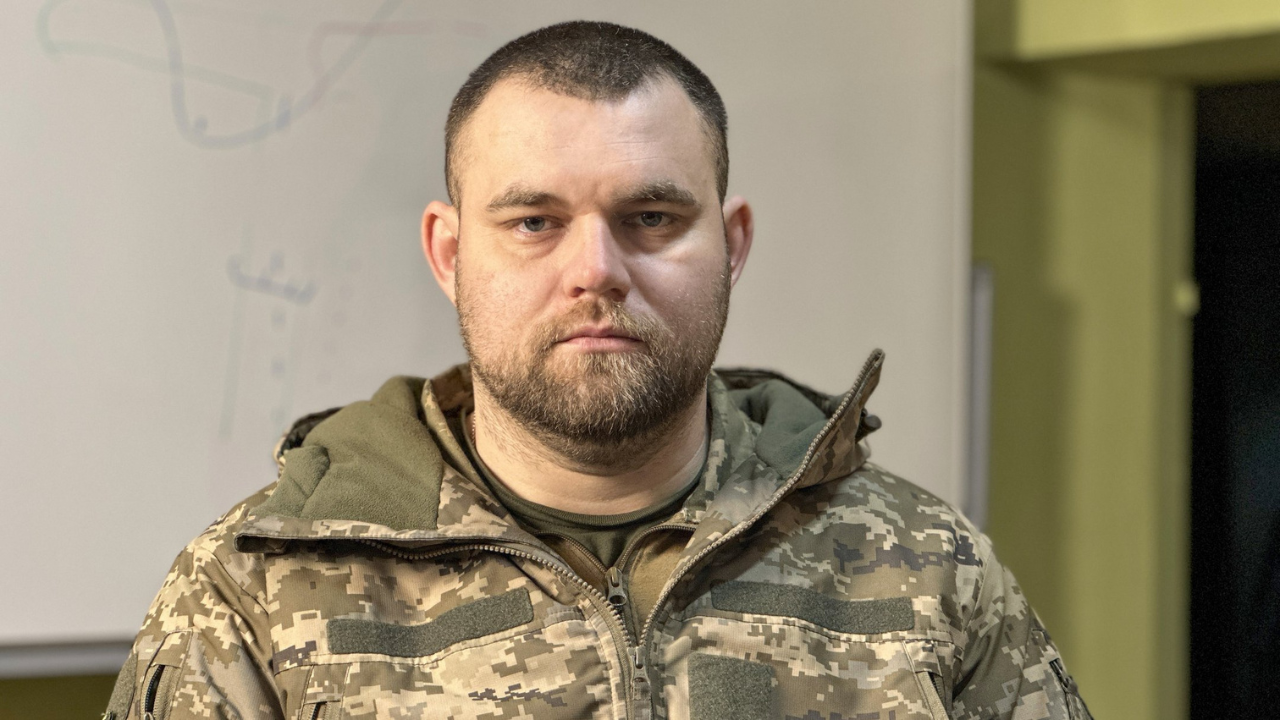
Pavlo Yurchuk, former commander of the Sarmat battalion, ex-deputy battalion commander of the 56th Motorized Infantry Brigade, and now commander of the 63rd Separate Mechanized Brigade. His call sign is Pianist. Photo: Suspilne
The MIHR’s sources could not say with certainty whether the controversial orders had originated directly from Yurchuk or whether he had merely been carrying out questionable instructions from higher command.
The tension in the 56th, 63rd, and likely many other brigades could at least be reduced — if not defused — through timely, effective investigations into complaints and by bringing cases to proper judicial review. In mid-May, the commander of the 59th Separate Assault Brigade, Bohdan Shevchuk, was relieved of his position — according to him, for his decision to withdraw troops from their positions in the Pokrovsk area due to the threat of encirclement.
Just as the MIHR was finalizing this article, Oleksandr Shyrshyn, battalion commander of the 47th Separate Mechanized Brigade “Magura”, made a public statement accusing his brigade leadership of giving “idiotic missions” on the Kursk front and “crawling to the generals,” which resulted in “stupid, senseless losses of personnel.”
Soldiers themselves tend to have a mixed attitude toward such public statements: some believe that internal solutions should be found within the unit rather than airing dirty laundry in public. Others fear to openly argue with leadership and, possibly, provoke retaliation — especially given that complaints are often redirected to the very commanders being accused.
Distrust toward official accounts about soldiers who went AWOL because they had conflicts with their leadership may stem from the understanding shared by all servicepeople that, as one of the MIHR sources put it, “it is not a problem to get rid of a man during the war. You can declare them AWOL, bury them in a mined forest — and no one will even look for them.”
At the end of last year, when one soldier from the 110th Separate Mechanized Brigade exposed the deputy brigade commander’s involvement in receiving combat bonuses for soldiers who had not actually served on the front line, the deputy reportedly filed fake documents declaring the whistleblower AWOL, according to the State Bureau of Investigation.
That same deputy commander is now under investigation on significantly more serious charges than those brought against officers from Sarmat who are being prosecuted for similar offenses including “creating a criminal organization”, “abuse of power during martial law”, “unlawful imprisonment”, and “threatening to kill”.
The article was written with the support of the International Renaissance Foundation. The views and opinions expressed herein are the responsibility of the authors and do not necessarily reflect those of the International Renaissance Foundation.




